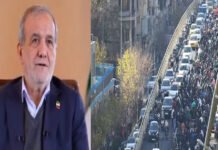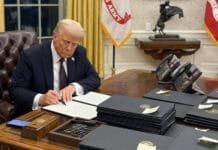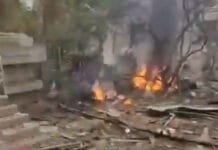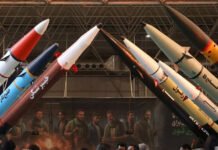The geopolitical tension surrounding Iran’s nuclear program has escalated dramatically, with US Secretary of State Marco Rubio issuing a powerful condemnation against Iran’s unprecedented demand to arrest and execute Rafael Grossi, the Director General of the International Atomic Energy Agency (IAEA). Rubio’s statement underscores the critical importance of ensuring the safety and security of IAEA personnel, who are tasked with monitoring Iran’s nuclear activities in the face of mounting hostility.
Marco Rubio’s Strong Rebuttal to Iran’s Threat Against IAEA Leadership
On Saturday, Marco Rubio took to social media platform X to sharply denounce Iran’s threats against Rafael Grossi. He declared that the demand to arrest and execute the IAEA Director General is not only unacceptable but must be unequivocally condemned by the international community. Rubio emphasized unwavering support for the IAEA’s mission, highlighting the agency’s vital role in nuclear oversight and nonproliferation.
In his statement, Rubio applauded the “hard work and professional conduct” of Grossi and his team, reaffirming the United States’ commitment to upholding the IAEA’s investigative mandate in Iran. He concluded by urging Iran to immediately ensure the safety of IAEA personnel, stressing that threats of violence against international monitors are a dangerous escalation that jeopardizes global nuclear security.
Background: Rising Tensions After Iran’s Arrest Threat Against IAEA Director
This alarming development follows a period of heightened hostility in the region. Recently, Iran’s Supreme Leader, Ayatollah Ali Khamenei, made a public declaration praising a missile attack on a major US military base in Qatar. He framed the strike as a retaliatory “slap in the face” to America, responding to US military actions against Iranian nuclear facilities in Fordo, Natanz, and Isfahan.
US President Donald Trump reacted strongly to Khamenei’s statement, characterizing it as filled with “anger and hatred.” Trump suggested that this hostile rhetoric might force the US to halt diplomatic dialogue with Iran and maintain or even intensify sanctions aimed at crippling Iran’s economy and nuclear ambitions.
Iran’s Halt of Cooperation with IAEA and Its Implications
The situation further deteriorated when Iran announced the cessation of cooperation with the IAEA. In a statement reported by Al Jazeera, Iran’s Foreign Minister Abbas Araghchi declared that Iran would no longer permit IAEA inspections at its nuclear sites. Araghchi described Grossi’s recent visit as “unnecessary and perhaps malicious,” signaling a clear rebuke to the agency’s oversight efforts.
This refusal to cooperate comes amid allegations of external aggression, with Israel reportedly conducting airstrikes against Iranian nuclear installations. Since June 13, the IAEA has been unable to perform any inspections on Iranian soil, hampering international efforts to verify the peaceful nature of Iran’s nuclear program.
Significance of IAEA’s Role and the Threat to Global Nuclear Security
The IAEA’s work in Iran is crucial for maintaining transparency and trust in the international community’s efforts to prevent nuclear proliferation. The agency’s inspections and monitoring ensure that Iran adheres to the terms of the Joint Comprehensive Plan of Action (JCPOA) and other international agreements aimed at restricting Iran’s ability to develop nuclear weapons.
Threats against the IAEA Director General and the cessation of inspections undermine this delicate framework, raising fears of an unchecked nuclear program. Such developments risk triggering further destabilization in the Middle East, a region already fraught with conflict and strategic rivalries.
US Commitment to Supporting the IAEA and International Nuclear Oversight
Marco Rubio’s statement reflects a broader US policy position that stresses the importance of international oversight in curbing nuclear threats. The US continues to support the IAEA not only politically but through funding and intelligence sharing, recognizing the agency as a cornerstone of global nuclear nonproliferation architecture.
Rubio’s call for Iran to protect IAEA personnel highlights the US insistence that international norms and the safety of diplomats and inspectors must be respected at all times, especially in conflict zones. The demand by Iran to arrest and execute Grossi is viewed as a blatant violation of these norms and a dangerous provocation.
Wider Geopolitical Impact: The US-Iran Confrontation and Regional Stability
Iran’s aggressive posture toward both the US and the IAEA signals deepening tensions that could have serious consequences beyond nuclear policy. The missile attack on the US base in Qatar, Khamenei’s fiery rhetoric, and Iran’s refusal to allow inspections reflect a broader strategy of defiance against Western influence.
This escalating hostility complicates efforts by global powers to engage Iran diplomatically and may harden US policy toward more direct confrontation or renewed sanctions. It also raises alarms among Iran’s neighbors and international observers concerned about the potential for conflict spiraling out of control.
The Road Ahead: Ensuring Nuclear Transparency and Preventing Escalation
The international community now faces a critical test in how it responds to Iran’s latest provocations. Maintaining the IAEA’s ability to monitor Iran’s nuclear sites is essential to preventing a nuclear arms race in the Middle East and preserving global security.
Efforts must focus on diplomatic pressure to reinstate full cooperation with the IAEA and protect its personnel. Failure to do so risks allowing Iran’s nuclear ambitions to advance unchecked, increasing instability and the risk of armed conflict.
Conclusion: A Unified Stand for IAEA Safety and Nuclear Accountability
US Secretary of State Marco Rubio’s condemnation of Iran’s demand to arrest and execute Rafael Grossi sends a clear message: the safety of IAEA personnel and the integrity of nuclear inspections are non-negotiable. The world must stand united in supporting the IAEA’s vital mission and pushing back against Iran’s dangerous provocations.
As tensions escalate, preserving international oversight mechanisms remains the most effective path to preventing nuclear proliferation and fostering long-term peace in a volatile region. The global community must reinforce its commitment to protecting inspectors, demanding transparency, and upholding the rules that keep the world safe from nuclear threats.















